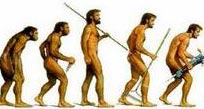
The epic article by Fast Company about the technology wars of 2012 provides great insight into what's happening in Silicon Valley and software in general these days. Four players, or the Fabulous Four, are mentioned to be the real market and innovation leaders: Amazon, Apple, Facebook, Google. Each of these companies found its place where it dominates and invents new business models, and each one is a role model for new generations of technology startups and leaders. And if you didn't notice, all of them sell software to consumers, not other companies (in case of Google and Facebook, you are the real customer, but advertisers pay for it). Software is becoming more and more consumer-oriented, and the clash of these titans will determine the outcome, the software of the future.
...more
written 12:25 CET on chronolog